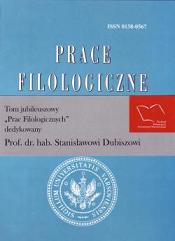
Pierwsze przekłady sonetów Adama Mickiewicza w języku gruzińskim i poematu Szoty Rustawelego na polski
In Poland and in Georgia romanticism appeared almost in the same time. There could be observed some affinities; however Russian and Georgian romanticism referred to different traditions. In 1832 a conspiracy against the Russian rule was discovered in Tbilisi. The people taking part in the plot were widely known members of the Georgian gentry elite. One of the youngest was prince Giorgi Eristavi, who was sentenced to exile. His destination was Poland and the country became very important for the future writer. He became fluent in Polish and got familiar with Polish literature. Eristavi rendered six Crimean Sonnets by Mickiewicz into Georgian.His translations show the affinity of thoughts and impressions between the two writers. The perfect form of the sonnet was many times distorted due to different rhyming traditions of the two languages. One should not forget, though, that these were the first attempts to translate such a peculiar literary genre into Georgian. Eristawi founded a magazine called ‘Ciskari’ whose first issue included a sonnet by Petrarch ‘The Blessing’ which was translated by Eristavi from a free translation by Mickiewicz. The launch of the Georgian almanac was another link with the name Polish poet. A Polish political exile, Kazimierz Łapczyn´ ski (who was an engineer) translated the masterpiece of Georgian narrative poetry of 12th century by Šota Rustaveli. Łapczyn´ski worked eagerly under Eristavi’s direction for two years. The result of the cooperation was a detailed prose translation of the Georgian poem which was published in ‘Varsovian Library’.
More...